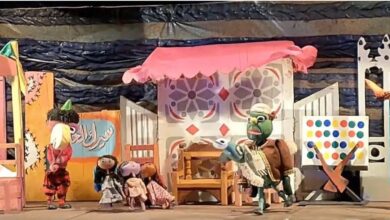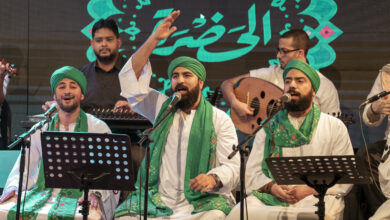Seeing him announced as a martyr on television, then receiving anonymous phone calls to say he was alive and well, Ziyad Bakir’s family was tortured by contradictory information about their missing son. All hope came to a devastating end when they found his body in Zeinhom morgue 43 days after he was shot dead in Cairo during a protest on 28 January.
Bakir, a 37-year-old graphic designer for Cairo’s Opera House, is described by his family as a typical artist. He spent long hours creating designs in his office, listened to classical music and practiced many forms of art.
He left behind three children under the age of ten: Habiba, Adham and Ahmed.
On 28 January’s Friday of Anger, as he watched one of many protest groups passing in front of his house on Ahmed Orabi Street, Bakir suddenly turned to his mother who was standing with him on the balcony. He said “I’m going down,” and she agreed. Ziyad sprinted down the stairs and that was the last time she saw him.
His family's first news of him after his disappearance was from the television, when he was mentioned in an evening program as one of the revolution’s martyrs. They called the show but could not verify the information. Then the false hope started; the family received a phone call from a person claiming that he was detained with Ziyad in a military prison, prompting the family to start a futile search of military prisons. The family then searched morgues throughout Cairo, but was relieved not to find his body in any of them.
Then they started receiving anonymous calls. The callers said that Ziyad was detained and would be released shortly, but if the family spoke about him or searched for him he would be harmed. The psychological torture was taken to another level when the callers began arranging fake meetings for the family to retrieve him. They would show up at the planned location hoping to come back home with Ziyad, but were crushed every time when no one showed up.
Calls reassuring the family that Ziyad was still alive continued until the day they found his body.
“Why would they leave his body lying in a fridge for 43 days? Why didn’t they allow us to honor him by burying his body after his death?” asked Bakir’s widow during his funeral, which was attended by hundreds who wanted to pay their respects, some wearing white instead of the traditional black to celebrate his martyrdom.
Two concerts were staged in the Opera House in his honor and his family was told that one of its halls will be named after him. Ziyad’s 7-year-old son, Adham, who inherited his father’s artistic talents, took the news the hardest. At a school recital, the little boy played a song composed for the revolution’s martyrs on the piano.
“Honoring Ziyad is not what matters to me now. I want to get his rights back. I want the people who killed him to be prosecuted,” said Bakir’s widow. His family has submitted two reports to the public prosecutor demanding the investigation of both his death and the anonymous calls that tortured them after his disappearance.




